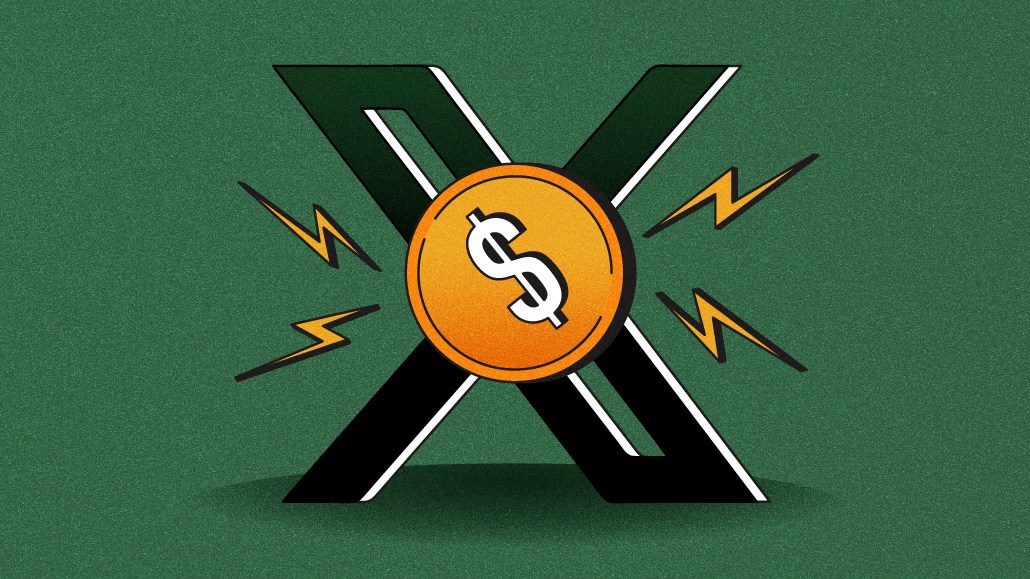Secure your place at the Digiday Publishing Summit in Vail, March 23-25

Elon Musk’s vision to automate as much of the ad process as possible using Grok has been met with a lukewarm response from advertisers.
Part of the hesitation is that it requires handing over complete control to an AI tool — something advertisers already do reluctantly with Google and Meta. Doing so on a platform with X’s historical volatility makes the leap even harder.
“We’re still hesitant with X because it’s historically underperformed and Grok, its AI assistant, is unproven,” said Christopher Spong, associate director, social media and communications at Collective Measures. “We’d need proof of its viability from a reputable source. The ‘trust us, bro’ messaging advertisers have been getting from X leadership isn’t inspiring confidence.”
Lingering trust issues aside, this is how advertisers typically always approach any new or emerging platform. And while Twitter wasn’t new per se, X is an entirely different platform from what it was.
Another challenge is the ability to get human support, which has remained a long-standing concern since the takeover back in October 2022. Four ad execs confirmed that they’ve not been able to retain any ongoing point of contact since then, meaning the relationship disappeared. Without it, there’s no clear way to troubleshoot issues, flag concerns or get basic guidance.
“We had a few [reps] rotate through over the years, but ever since Musk took over, we haven’t been able to retain a point of contact or receive any ongoing support,” said Jack Johnston, senior social innovation director at Tinuiti.
That’s not to say Musk is off base. As Google and Meta have automated more of their ad systems, it’s become easier for smaller advertisers to spend.
“What we’re thinking about at X is how we can truly level the playing field and allow SMBs to compete in an exciting way on the platform,” Monique Pintarelli, head of the Americas at X, said during the Spaces event last week. “In terms of advancements around advertising to compete in an exciting way, AI capabilities to streamline, we think X is a fantastic place for SMBs to thrive and to build their businesses.”
Compelling as it sounds, it’s no silver bullet for X’s broader woes.
As Jellyfish’s global evp paid social Shamsul Chowdhury put it, using Grok to automate advertising on X certainly makes it more interesting, but not necessarily more appealing. Partly because there’s still a lot of brand safety concerns around Grok, he said.
“They need big brands to come on board to help with their reputation,” said Chowdhury.
So far Musk has struggled to make that happen. While X has rolled out content controls, adjusted moderation policies and launched new brand safety tools to reassure wary advertisers, Musk’s own behavior has repeatedly undermined those efforts, from amplifying conspiracy theories to reinstating banned accounts, making it harder for marketers to trust the platform’s commitment to a safe environment.
Well, not all of them. Execs from Shark Ninja, Kia, Lowe’s and Uber were on the Spaces call last week. Even the NFL, WNBA and other major sports leagues have already joined forces with X, while Yaccarino was there.
X is in a chicken-and-egg scenario: it wants more ad dollars from smaller business but many of them are waiting for proof that the platform can actually drive results. Thank kind of validation usually comes from big brand investment — the kind that signals legitimacy and performance. But with trust still eroded and reputation risks unresolved, those big brands aren’t rushing back.
“X could benefit from more investment in advertiser support,” said Alanna Putterman, group vp of social media investment at Basis Technologies. “Knowing that advertisers can talk to someone to build confidence in the platform or to assist in activating campaigns would help encourage spending.”
X did not respond to Digiday’s request for comment.
More in Marketing

‘The conversation has shifted’: The CFO moved upstream. Now agencies have to as well
One interesting side effect of marketing coming under greater scrutiny in the boardroom: CFOs are working more closely with agencies than ever before.

Why one brand reimbursed $10,000 to customers who paid its ‘Trump Tariff Surcharge’ last year
Sexual wellness company Dame is one of the first brands to proactively return money tied to President Donald Trump’s now-invalidated tariffs.

WTF is Meta’s Manus tool?
Meta added a new agentic AI tool to its Ads Manager in February. Buyers have been cautiously probing its potential use cases.








